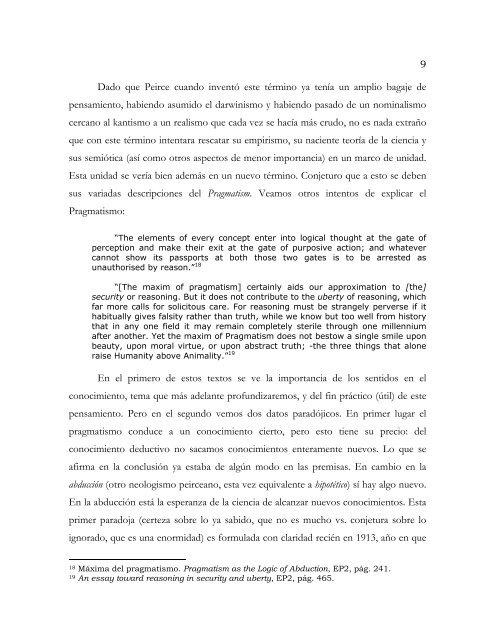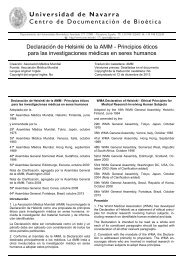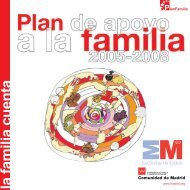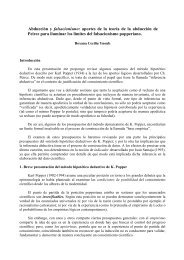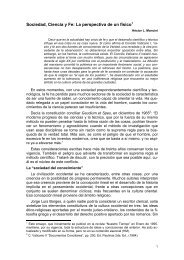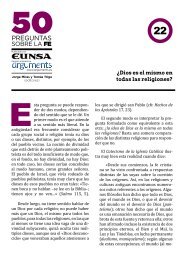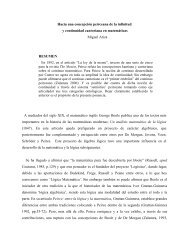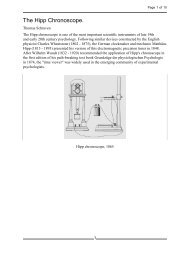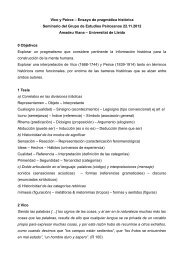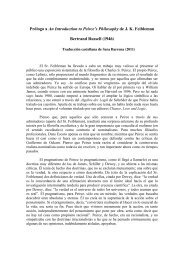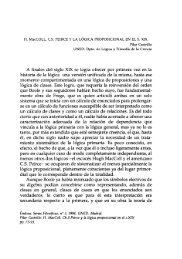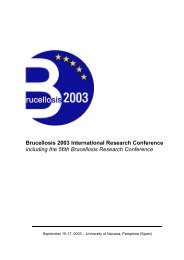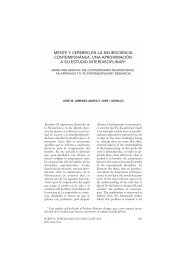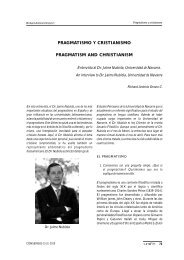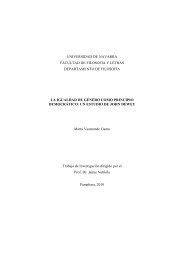Aportes filosóficos de Charles Sanders Peirce - Universidad de ...
Aportes filosóficos de Charles Sanders Peirce - Universidad de ...
Aportes filosóficos de Charles Sanders Peirce - Universidad de ...
You also want an ePaper? Increase the reach of your titles
YUMPU automatically turns print PDFs into web optimized ePapers that Google loves.
9<br />
Dado que <strong>Peirce</strong> cuando inventó este término ya tenía un amplio bagaje <strong>de</strong><br />
pensamiento, habiendo asumido el darwinismo y habiendo pasado <strong>de</strong> un nominalismo<br />
cercano al kantismo a un realismo que cada vez se hacía más crudo, no es nada extraño<br />
que con este término intentara rescatar su empirismo, su naciente teoría <strong>de</strong> la ciencia y<br />
sus semiótica (así como otros aspectos <strong>de</strong> menor importancia) en un marco <strong>de</strong> unidad.<br />
Esta unidad se vería bien a<strong>de</strong>más en un nuevo término. Conjeturo que a esto se <strong>de</strong>ben<br />
sus variadas <strong>de</strong>scripciones <strong>de</strong>l Pragmatism. Veamos otros intentos <strong>de</strong> explicar el<br />
Pragmatismo:<br />
“The elements of every concept enter into logical thought at the gate of<br />
perception and make their exit at the gate of purposive action; and whatever<br />
cannot show its passports at both those two gates is to be arrested as<br />
unauthorised by reason.” 18<br />
“[The maxim of pragmatism] certainly aids our approximation to [the]<br />
security or reasoning. But it does not contribute to the uberty of reasoning, which<br />
far more calls for solicitous care. For reasoning must be strangely perverse if it<br />
habitually gives falsity rather than truth, while we know but too well from history<br />
that in any one field it may remain completely sterile through one millennium<br />
after another. Yet the maxim of Pragmatism does not bestow a single smile upon<br />
beauty, upon moral virtue, or upon abstract truth; -the three things that alone<br />
raise Humanity above Animality.” 19<br />
En el primero <strong>de</strong> estos textos se ve la importancia <strong>de</strong> los sentidos en el<br />
conocimiento, tema que más a<strong>de</strong>lante profundizaremos, y <strong>de</strong>l fin práctico (útil) <strong>de</strong> este<br />
pensamiento. Pero en el segundo vemos dos datos paradójicos. En primer lugar el<br />
pragmatismo conduce a un conocimiento cierto, pero esto tiene su precio: <strong>de</strong>l<br />
conocimiento <strong>de</strong>ductivo no sacamos conocimientos enteramente nuevos. Lo que se<br />
afirma en la conclusión ya estaba <strong>de</strong> algún modo en las premisas. En cambio en la<br />
abducción (otro neologismo peirceano, esta vez equivalente a hipotético) sí hay algo nuevo.<br />
En la abducción está la esperanza <strong>de</strong> la ciencia <strong>de</strong> alcanzar nuevos conocimientos. Esta<br />
primer paradoja (certeza sobre lo ya sabido, que no es mucho vs. conjetura sobre lo<br />
ignorado, que es una enormidad) es formulada con claridad recién en 1913, año en que<br />
18 Máxima <strong>de</strong>l pragmatismo. Pragmatism as the Logic of Abduction, EP2, pág. 241.<br />
19 An essay toward reasoning in security and uberty, EP2, pág. 465.


